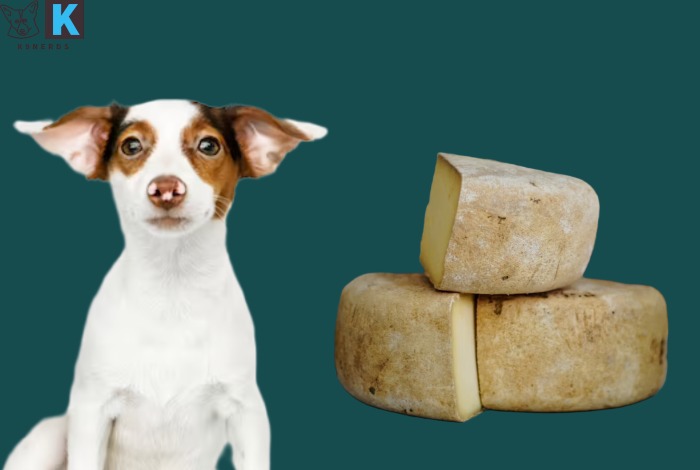Does ricotta cheese suit dogs? While adding ricotta cheese to a handmade lasagna, you may have wondered if you may give some to your dog. Can dogs safely eat ricotta cheese if people can do so?
Ricotta cheese is healthy for dogs to consume, but there isn’t a simple yes or no response. Contrary to blue cheeses, which should generally be avoided, this food is not technically hazardous to dogs. However, ricotta also includes lactose, which might make dogs who have lactose intolerance more uncomfortable.
Ricotta cheese is also not the ideal food to give to your dog frequently because it is high in fat.
As always, consult your normal veterinarian before giving your dog friend any human food, including cheese. What you should know about ricotta cheese and dogs is provided below.
When Is Ricotta Cheese Okay For Dogs To Eat?
It is not believed that ricotta cheese is hazardous to dogs. Regarding its nutritional advantages, it has a healthy amount of protein, as well as minerals like calcium and selenium and vitamins A.
Dogs who might have problems eating other dairy products that are higher in lactose can handle ricotta cheese because it frequently contains less lactose than other cheeses.
Ricotta is also soft enough to be utilized to give your dog medicine if they are reluctant to take their tablets. You can learn pill-pocketing techniques from your veterinarian.
The particular serving size of ricotta that is suitable for your dog to eat as a treat will depend on a number of variables, including their age, weight, and overall health. Your veterinarian can assist you in creating secure standards for your specific dog.
When Is Ricotta Cheese Bad For Dogs?
Ricotta cheese may not be poisonous to dogs, but it does contain lactose, which might be problematic for dogs with lactose intolerance.
Ricotta is heavy in fat, so consuming too much of it may contribute to your dog becoming obese, which can lead to a variety of other health issues and concerns.
As a result, while you can probably feel safe giving your dog a small piece of ricotta as a tasty treat every now and then, it’s best to keep to doing so in moderation.
Does your dog enjoy the occasional ricotta cheese bite? Does your dog ever receive it as a treat? Please describe it in detail in the comments box below.
Frequently Asked Questions about Dogs and Ricotta Cheese:
Q1: Can dogs eat ricotta cheese?
A2: While ricotta cheese is generally safe for dogs in moderation, it’s important to consider a few factors. Ricotta cheese is a dairy product, and some dogs may have difficulty digesting lactose. Additionally, ricotta cheese is high in fat and calories, so it should only be given as an occasional treat and in small quantities. If your dog has any dietary restrictions or health issues, it’s best to consult with your veterinarian before introducing ricotta cheese into their diet.
Q2: Is ricotta cheese toxic to dogs?
A2: Ricotta cheese is not inherently toxic to dogs. However, some dogs may be lactose intolerant or have difficulties digesting dairy products. Feeding large amounts of ricotta cheese to a dog with lactose intolerance can lead to gastrointestinal issues such as diarrhea, gas, and bloating. It’s always best to introduce any new food slowly and in small portions, monitoring your dog’s reaction.
Q3: Are there any health benefits to feeding dogs ricotta cheese?
A3: Ricotta cheese contains protein and calcium, which are essential nutrients for dogs. However, these benefits can be obtained through other dog-friendly foods without the potential drawbacks of ricotta cheese. It’s important to remember that dogs have different nutritional requirements than humans, and a balanced diet consisting of high-quality dog food is usually the best way to meet their nutritional needs.
Q4: What should I watch out for if I give ricotta cheese to my dog?
A4: When giving ricotta cheese to your dog, it’s crucial to watch out for any signs of digestive upset or intolerance. Monitor your dog for symptoms such as vomiting, diarrhea, excessive gas, or bloating. If you notice any negative reactions, it’s best to discontinue feeding ricotta cheese and consult your veterinarian.
Q5: Can I use ricotta cheese as a training treat for my dog?
A5: Using small amounts of ricotta cheese as an occasional training treat can be acceptable for some dogs, especially if they tolerate dairy well. However, it’s important to remember that ricotta cheese is high in fat and calories, so it should be used sparingly. There are many other dog-friendly training treats available that are specifically formulated for dogs and provide a healthier option for rewarding your furry friend during training sessions.

